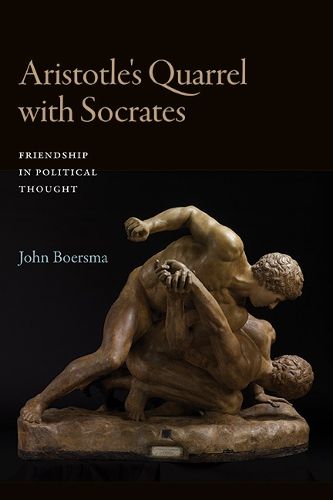Readings Newsletter
Become a Readings Member to make your shopping experience even easier.
Sign in or sign up for free!
You’re not far away from qualifying for FREE standard shipping within Australia
You’ve qualified for FREE standard shipping within Australia
The cart is loading…






Makes the case that the different stances Aristotle and Socrates take toward politics can be traced to their divergent accounts of friendship.
Aristotle's Quarrel with Socrates is an account of the role friendship plays in ancient political thought. Examining Platonic dialogues and Aristotle's ethical and political treatises, John Boersma makes the case that the different stances Aristotle and Socrates take toward politics can be traced to their divergent accounts of friendship. Aristotle's Quarrel with Socrates brings to the fore the tension that exists between the philosophic life as exemplified by Socrates and the life devoted to politics. It goes on to argue that Aristotle's account of a friendship of the good, based on human excellence, can reduce, not to say eliminate, this tension, enabling the development of a political community that is organized for action in history.
$9.00 standard shipping within Australia
FREE standard shipping within Australia for orders over $100.00
Express & International shipping calculated at checkout
Makes the case that the different stances Aristotle and Socrates take toward politics can be traced to their divergent accounts of friendship.
Aristotle's Quarrel with Socrates is an account of the role friendship plays in ancient political thought. Examining Platonic dialogues and Aristotle's ethical and political treatises, John Boersma makes the case that the different stances Aristotle and Socrates take toward politics can be traced to their divergent accounts of friendship. Aristotle's Quarrel with Socrates brings to the fore the tension that exists between the philosophic life as exemplified by Socrates and the life devoted to politics. It goes on to argue that Aristotle's account of a friendship of the good, based on human excellence, can reduce, not to say eliminate, this tension, enabling the development of a political community that is organized for action in history.